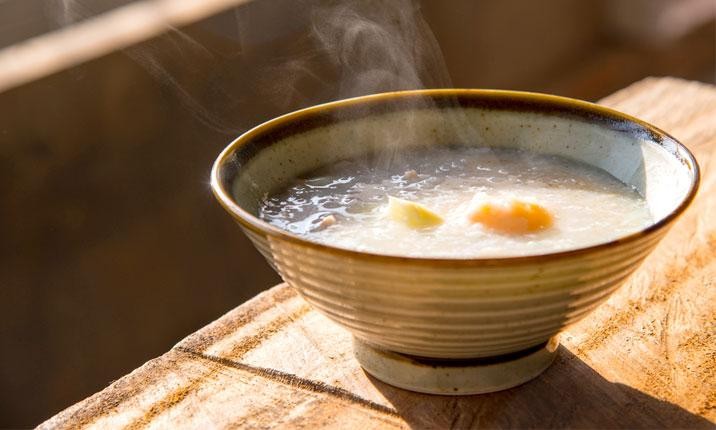You’ve likely heard about the importance of breakfast, often touted as the most crucial meal of the day. While debates exist regarding its absolute necessity, consuming a nutritious and balanced breakfast offers several well-documented health advantages. But when it comes to breakfast, should you be reaching for something hot, or Is It Okay To Eat Cold Food?
Benefits of a healthy breakfast include:
- Providing energy for work or school
- Enhancing concentration and memory
- Reducing LDL Cholesterol levels (“bad” cholesterol)
- Lowering the risk of diabetes and heart disease
- Decreasing the likelihood of becoming overweight
Making time for a healthy breakfast can positively impact your health. However, the temperature of your breakfast is also important. Both hot and cold breakfasts have different effects on your health. Let’s dive in.
The Potential Downsides of a Hot Breakfast
While a steaming cup of coffee or hot porridge might sound appealing on a cold morning, there are some potential risks to consider.
Research indicates a correlation between consuming very hot beverages and an increased risk of esophageal cancer. One study conducted in Iran revealed a significant increase in esophageal cancer risk among individuals who consumed beverages hotter than 60ºC (140°F) and more than 700ml of tea daily, compared to those who consumed less tea at cooler temperatures.
Furthermore, a study published in the Annals of Internal Medicine linked drinking tea at high temperatures, combined with excessive alcohol consumption and smoking, to a 2- to 5-fold increase in esophageal cancer development. The likely cause is chronic inflammation of the esophageal lining due to repeated thermal injury.
Another study in China found that consuming tea, water, and foods at high temperatures significantly increased the risk of esophageal squamous cell carcinoma, especially when combined with smoking and alcohol consumption.
Therefore, it’s wise to let your favorite hot breakfast beverages, soups, and meals cool down slightly before consuming them.
Potential Negative Effects of a Cold Breakfast: Gut Health Concerns
The primary concern with a cold breakfast often revolves around potential gut issues. Regularly consuming cold food can sometimes lead to discomfort like puffiness, cramps, and bloating. However, individual experiences may vary, and further research is needed to fully understand the impact of food temperature on gut health.
Functional dyspepsia, a common gut issue also known as non-ulcer stomach pain, can be exacerbated by cold foods.
Symptoms of functional dyspepsia include:
- Recurring indigestion
- Stomach pain or burning
- Bloating
- Excessive belching
- Nausea
- Feeling full prematurely
If you suspect you have functional dyspepsia, limiting cold food consumption is advisable. The digestive system generally breaks down warm food more efficiently.
A small study involving patients with epigastric pain showed that ingesting liquids at 8ºC (46°F) resulted in significant gastric contraction and reduced gastric sensory threshold compared to liquids at 37ºC (98.6°F). Epigastric pain, felt in the upper abdomen below the ribcage, is usually not concerning if occasional, but severe cases require medical attention.
Benefits of Eating a Hot Breakfast
Hot food can aid in digestion. The cooking process breaks down chemicals in food, facilitating nutrient absorption. This is particularly true for foods like tomatoes, which become more nutritious when cooked.
Hot food is often easier to digest because it closely matches the body’s core temperature, requiring less energy for digestion. Cold food, on the other hand, requires the body to expend energy to warm it up before digestion can begin.
Additionally, cooking food at higher temperatures reduces the risk of bacterial contamination.
Benefits of Eating a Cold Breakfast
Consuming cold water in the morning, for example, can be beneficial, especially if you exercise. Cold water can help lower your body’s core temperature, reducing the risk of heat-related injuries. It can also help you burn a few extra calories as your body works harder to maintain its core temperature.
This principle extends to other healthy cold breakfast options like yogurt with fresh fruits, cereal with cold milk, or cold breakfast smoothies. Digesting these foods requires your body to expend more calories.
Breakfast Recommendations: Finding the Right Balance
Hot Breakfast Tips
- Cool down hot drinks and foods: Aim for warm, not piping hot.
- Healthy and Warm Breakfast Ideas:
- Eggs
- Oatmeal (avoid flavored varieties with added sugar)
- Brown rice porridge
- Warm salad
- Warm green tea
- Warm coffee
- Breakfast burrito with healthy ingredients
Cold Breakfast Tips
- Choose Healthy Cold Options:
- Protein smoothies
- Yogurt with fresh berries
- Cereal with cold, low-fat milk, oat milk, or almond milk
- Overnight oats
- Fresh, cut fruits
- Cold salad
- Cottage cheese
- Cold green tea
- Iced, black coffee
Room-Temperature Breakfast Ideas
- Wholemeal bread or buns
- Nuts, seeds, and beans
- Homemade breakfast bars (be mindful of store-bought bars often high in sugar)
- Sandwiches, pancakes and quiche
The Bottom Line: Moderation and Balance
Ultimately, it’s okay to eat cold food for breakfast, as long as you practice moderation and listen to your body. Remember to include a balance of healthy carbohydrates, fiber, and protein in your breakfast. Prioritize whole grains and be mindful of overconsumption of carbohydrates, which can lead to obesity and an increased risk of metabolic diseases like diabetes. Adding fruits and vegetables provides essential vitamins and minerals.
Avoid extreme temperatures in your food and drinks, and moderate your intake of tea and coffee. Keeping food warm, not hot, and limiting the amount of cold food you consume can contribute to better gut health. If you are still concerned, consider speaking with a doctor or registered dietitian for personalized advice tailored to your specific health needs.

